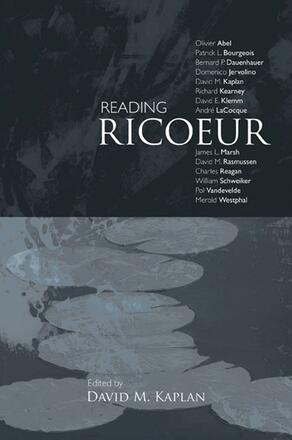
Reading Ricoeur
Alternative formats available from:
Introduces readers to the work of Paul Ricoeur, one of the twentieth century’s leading philosophers.
Description
In Reading Ricoeur, fourteen well-known scholars interpret, evaluate, and criticize the works of Paul Ricoeur, one of the twentieth century's most important and far-reaching philosophers. The contributors discuss Ricoeur's entire philosophical career: from his existentialist-phenomenology of the 1940s and '50s; his hermeneutics and critique of structuralism in the 1960s and '70s; his narrative and moral philosophy of the 1980s; his political and legal philosophy of the 1990s; his recent work on memory, forgiveness, and recognition; as well as his enduring interests in religious language and the problem of evil. The contributors not only explain the central concepts and structures of Ricoeur's philosophy, but they also bring him into dialogue with his contemporaries, including Sartre, Heidegger, Gadamer, Habermas, Rawls, and Lyotard. Reading Ricoeur demonstrates the central role of Paul Ricoeur in the development of twentieth-century philosophy.
David M. Kaplan is Assistant Professor of Philosophy at the University of North Texas and the author of Ricoeur's Critical Theory, also published by SUNY Press.
Reviews
"Anyone with an interest in Ricoeur will profit from this exceptionally well-conceived and well-crafted compilation; it touches on every significant aspect of the thinker's oeuvre … the Ricoeur that emerges here embodies all that his audience esteems in the engaged intellectual's efforts to forge a living connection between critical reflection and responsible action. " — CHOICE
"I fully believe that Ricoeur's work is crucial to contemporary theory. In philosophy, religious studies, aesthetics, humanities, and social sciences in general, Ricoeur has a clear place and this collection covers the wide range that is needed. " — Farhang Erfani, American University